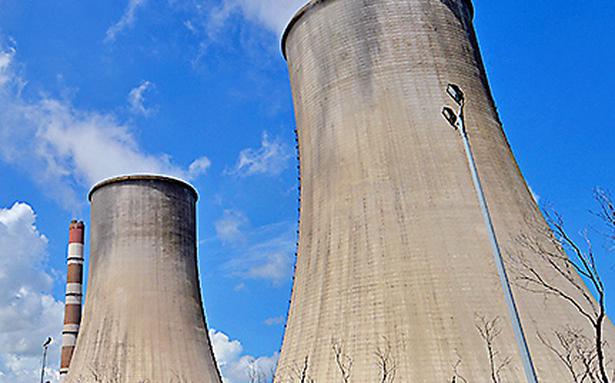LNG spot prices rose to a record high of almost $60 per million British thermal units (mmBtu) late last week after the invasion, making them about 10 times more expensive than a year ago.
LNG spot prices rose to a record high of almost $60 per million British thermal units (mmBtu) late last week after the invasion, making them about 10 times more expensive than a year ago.
US liquefied natural gas (LNG) exporters are emerging as big winners from Europe’s supply crisis as they export record volumes to the European Union for a third straight month at prices that have risen since the Russian invasion of Ukraine.
European gas prices have hit all-time highs as LNG exporters in the United States completed projects that had been under development for years to provide plentiful supplies of shale gas to international markets.
Big US developers like Cheniere Energy Inc, the biggest US exporter, are among the main beneficiaries after they signed numerous long-term deals to sell LNG in recent months, traders said.
Commodity traders such as Trafigura and Gunvor, as well as some Japanese trading houses that have positions in the US liquefaction terminals, are also seen as big winners after diverting cargo originally destined for other regions to higher-paying European markets.
Russia is a major global oil exporter and supplier of around 40% of Europe’s natural gas.
“The US and its LNG producers are benefiting from gas shortages in Europe and will continue to benefit if Russian volumes are sanctioned,” said a European trader.
Trafigura and Gunvor did not respond to Reuters’ request for comment. Cheniere was not immediately able to comment.
LNG spot prices rose to a record high of almost $60 per million British thermal units (mmBtu) late last week after the invasion, making them about 10 times more expensive than a year ago. They are currently around $51.
Prices are likely to rise again after the United States on Tuesday announced a ban on Russian oil and gas exports in retaliation for Moscow’s invasion. Great Britain is expected to follow.
The US Energy Information Administration projects that US LNG exports will reach 11.4 billion cubic feet per day (bcfd) in 2022. That would account for about 22% of expected global LNG demand of 53.3 bcfd next year, according to analysts at Goldman Sachs, and would surpass both Australia and Qatar, the current two top exporters.
Prices have risen so much in Europe that traders of LNG cargoes would rather pay millions of dollars in penalties for non-delivery to other countries in order to be able to sell the cargo to European buyers at a premium, said Oystein Kalleklev, CEO of shipping company FLEX LNG -Management.
Two sources at a major energy company, who declined to be named, said the United States has diverted several dozen cargoes from its previous Asian destinations to Europe over the past three months. A typical cargo consists of about 3 billion cubic feet of natural gas.
The total number of US cargoes shipped to Europe and Turkey in the first two months of 2022 hit a record 164, according to Robert Songer, LNG analyst at data intelligence firm ICIS. The previous record was 125 cargoes in the first quarter of 2020, he said.
The 6.4 million tons of LNG exported from the United States in February, equivalent to about 307 billion cubic feet of gas, would be about $17.2 billion at $56 per mmBtu, or 13.5 in Europe, according to Reuters Billion US dollars in Asia has been worth 44 US dollars per mmBtu calculations.
OTHER BUYERS DEDUCTED
Developing countries like Pakistan are struggling to compete with the high prices Europe is willing to pay for LNG and have to rely on dirtier fuels like coal to meet electricity needs.
“Markets like Pakistan, Bangladesh, etc. will shift toward increased use of fuel oil, coal and other cleaner fuels as LNG prices continue to spike,”
Eni and Gunvor, both longtime gas suppliers to Pakistan, were unable to deliver scheduled cargoes for March, an industry source told Reuters, forcing the South Asian country to buy LNG cargoes from the spot market.
Eni was unable to honor his commitment because the supplier of three of his shipments, Trafigura, canceled and instead sent the vessels to Europe, an industry source told Reuters.
“Trafigura would rather pay the penalty fee, which is around $11-12 million, and sell the gas on the spot market at today’s prices,” the source said.
Eni said it is considering contractual remedies, including legal action, to uphold its rights.
A source with knowledge of the matter said Trafigura has the right to cancel the charges for a fee.
(Reporting by Marwa Rashad in London, Stephen Jewkes in Milan, and Scott DiSavino in New York; additional reporting by Julia Payne in London and Marcy de Luna in Houston; writing by Marwa Rashad; editing by Richard Valdmanis and David Gregorio)



